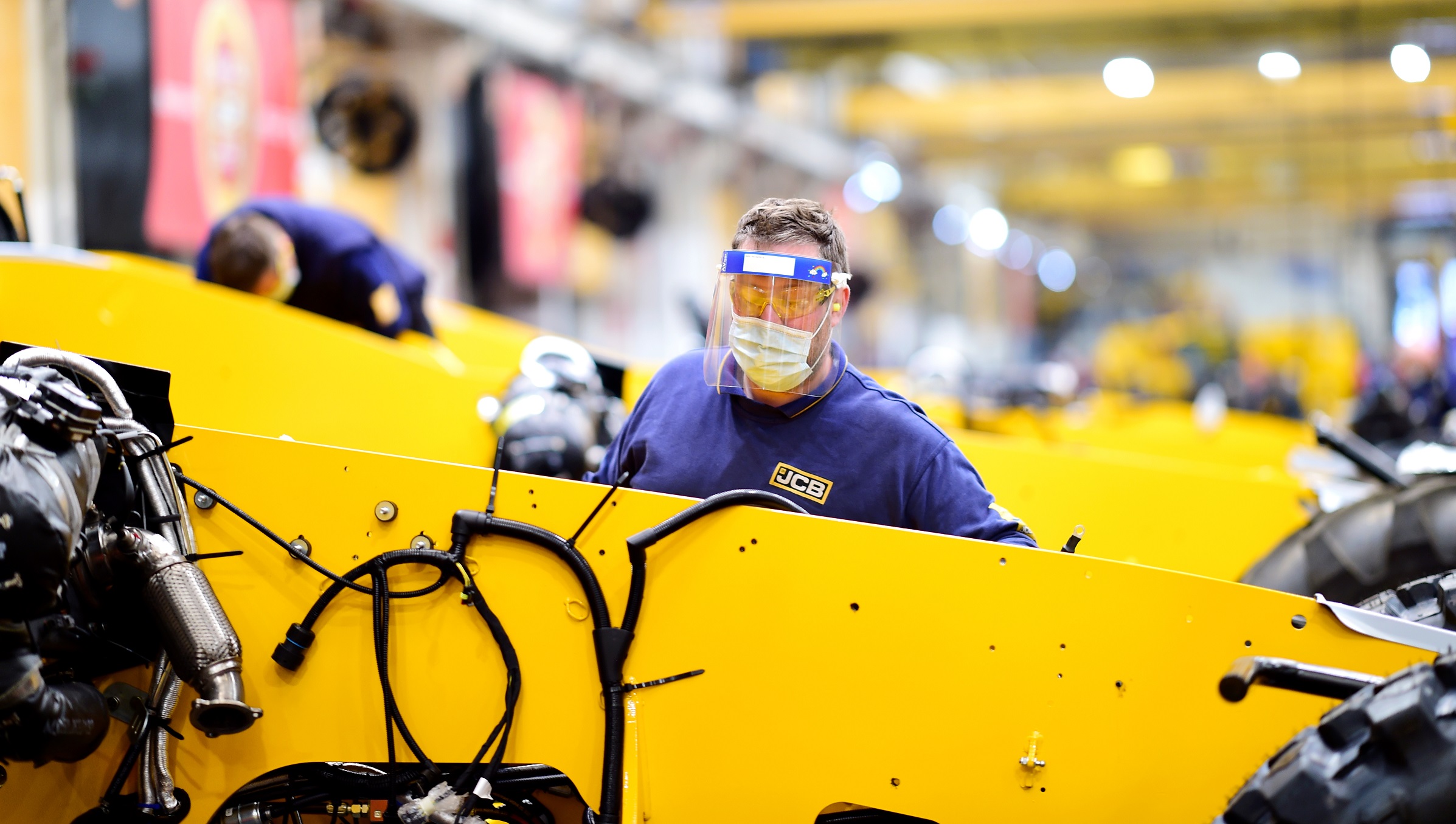
The new 525-60E telehandler is being offered in addition to the conventional diesel 525-60 variant. The new electric model features a lithium-ion battery pack rated at 96V and which allows working for a whole shift. Using the JCB fast-charging system, it can be recharged in 60 minutes, while it can also be recharged 5,000times before the pack needs replacing.
The 17kW electric motor powering the driveline is bolted directly to the transmission, so there is no need for hydrostatic motors. According to the firm, this offers the same level of precision of control for inching as a hydrostatic drive, while providing much higher efficiency as well as a responsive performance. Similarly, the 22kW electric motor powering the hydraulics also offers high working efficiency and control.
The power system can operate in a wide range of ambient temperatures, ranging from 60°C down to -20°C. According to Richard Brooks, engineering director at JCB’s handling group: “The 525-60E is the same as the diesel 525-60 but with zero emissions and zero compromises on performance.”
The all-electric machine offers the same 2.5-tonne lifting capacity and 2-tonne capacity at 6m as the diesel model. Regenerative braking helps top up the battery while the boom lower system also helps provide regenerative power, extending operating time. Of note is that when there is no demand for traction or lifting, the electric motors do not draw power and do not idle, unlike a diesel machine. However, the electric motors deliver a fast response to demand.
Because it has zero emissions, the electric machine is well-suited to duties in tunnelling operations or underground car parks, for example, where additional ventilation would be required to remove exhaust fumes. JCB also points out that as the electric machines have much lower working noise levels than conventional diesel models, they can be used in nighttime operations, without causing a disturbance even in areas with housing.
Meanwhile, the 30-19E forklift has a 3-tonne maximum capacity and a 1.6-tonne capacity at 3m forward reach, while the larger 35-22E offers a 3.5-tonne maximum capacity. Both machines are all-electric and retain the novel telescopic mast seen on the existing diesel models. Along with the new all-electric site dumper, all-electric mini excavator, high-speed charging system and portable battery pack, these new models extend JCB’s electric construction machine range. With growing concerns over emissions, the company expects to develop sales for these machines for use in urban areas in markets such as Europe, China and parts of the US (New York and California). The company sees considerable potential for the models being developed under its Road to Zero programme as demand for low emissions solutions increases.
However, the company is also looking beyond all-electric equipment and is considering potential future fuels as well. JCB unveiled its prototype hydrogen fuel cell excavator earlier this year, a machine that also forms part of the company’s Road to Zero programme. This 22-tonne class excavator is under long term evaluation at JCB’s test facility.














